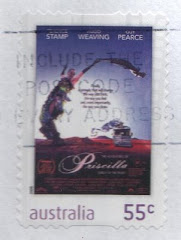Today, as we are about to embrace a New Year, I read a book I would like to briefly share with my friends, that precisely talks about the future
In, "A Brief History of the Future", Allen & Unwin (2011), translated from the French by J. Leggatt, Jacques Attali is talking about both the history and the future of the 'Mercantile Order', a Greek-Judeo legacy born long ago in the favorable climate of the Middle East that serves us well as long as it does not go unchecked. He foresees a number of scenarios of what could happen if no halt was put to the might of an unleashed Mercantile Order as the notion of state fades away ... gruesome scenarios with a bit of Kaplan redistilled ... but most interestingly, there is the "last chapter".
In this last chapter, he hypothesizes that when we will finally have learnt our lessons (at the end of the 21st century, if we survive the previous turmoils), the Mercantile Order will have made some adjustments as it works alongside a "relational economy" that will emerge when humans especially concerned with transmitting to future generations will realize that they can only survive united and pacific, when they will realize that their own happiness depends on those of others.
We will then finally rise from egocentricism/survival mode/fierce competition, and we will become responsible citizen, self monitoring our excesses ourselves through diverse devices. We will even learn things like putting limits to goods consumption, and we will define supranational norms (as opposed to dominant multilateral norms) for the protection of children, etc.
- Last Chapter Extracts -
"Humanity's common good will be neither greatness, nor wealth, nor even happiness, but protection of the things that make life possible and worthwhile - climate, air, water, freedom, democracy, culture, languages, fields of knowledge ... "
"This common good will be like a library that needs to be updated and maintained, a natural park, to be passed on after cultivating and enriching it without having modified it in any irreversible way. The way Namibia fosters its wildlife, or France protects its forests, or in which certain peoples protect their culture, suggests what might be a foretaste of this common good. This can never be a market commodity, nor a state property, nor a multilateral good: it must be a supranational good".
(p.270)
"In the same way, humanity can create a collective intelligence distinct from the sum of the particular intelligences of the beings who made it up, distinct from the collective intelligences of groups and nations. For example, the development of freeware will form an exemplar of universal intelligence as a kind of global brain network, a collective golem. While Wikipedia may still be an often unreliable aggregate of the intelligences of its authors, we shall see (and are already seeing) the birth (made possible by the work of all) of a collective result different from what each individual contributor intended".
(p.271)
"Humankind's common good will be all the stronger as increasing numbers of people gain access to essential goods. Just as a research center has an interest in its researchers' discoveries, just as the speakers of one language need those who speak it to be as numerous as possible, so each human being will want others to be in full possession of the means to achieve their dignity and their freedom, in other words to be in good health and well educated. It will be in humanity's interest that each human be happy to be alive; altruism will be to everyone's benefit. It will become rational."
(p.275)


























